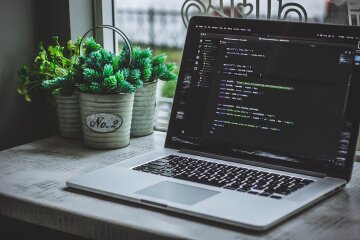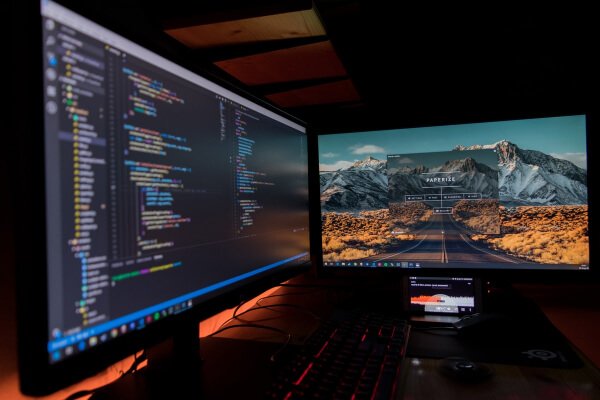- On-Demand Course
Explore computer programming courses and programs
Build essential coding skills needed for front-end and back-end web development, machine learning, iOS and Android app development, and much more. Learn coding and take computer programming classes online through COUESLIK.

What is computer programming?
Computer programming is the process of writing instructions that are to be executed by computers. These written instructions are often called “code,” as they are written in one of several special programming languages which the computer can understand. Those who can write instructions in one of these codes are called coders, or programmers.


A programmer’s tasks include understanding project requirements, determining the right programming language to use, designing the solution, coding it, testing and debugging the code, and finally writing documentation that allows their solution to be easily understood by other programmers.
Computer programming is at the heart of computer science and is the implementation portion of software development, application development, and software engineering efforts. It transforms ideas and theories into working solutions.

- Featured Course
Getting Started With Python 3 for Beginner
- Fundamental
- Input and output
- Conditional branching
- 8+ more lessons

Front End
HTML 5 Web Component Fundamentals
- Beginner
- 2h 24m

Front End
Mastering CSS 3 Flexbox With Real World Projects
- Beginner
- 3h 18m

Front End
Full Stack Web Development with React Hooks and Redux
- Intermediate
- 4h 36m
Testimonials
Trusted by Thousand of Students and Tutors

A Really good and comprehensive course. Angel explains things very well and really knows her stuff. And with a subtle but engaging sense of humour.
Emma Hart

The teacher is super helpful and explains things in a way that even I could understand very well and I used to think coding was like to memorize a whole other language, but this course made it feel like a fun puzzle!
Eddie Johnson

This course is just awesome!Angela takes you from baby steps to flying.I would totally recommend this course to anyone who wants to learn Python or to grow their skill
Jonathan Doe

Amazing course from top to bottom!It really feels like I understand how CSS works, and why it works the way it works.
Mike Edward

Computer programming FAQ
We will send your order to your email within an hour at most after you successfully make your purchase
Computer programming is the code that tells a computer how to take specific actions when it runs a program or app. It is the set of instructions, often millions of lines long, which allows a laptop to process a letter, publish an article, or run the instructions for video games.
Programming language is the special code that holds all of the instructions that the computer can understand and act upon. There are hundreds of different programming languages – each used for different types of tasks. As a beginner computer programmer, you’ll only be expected to understand a handful of them.
A programmer will have to interpret the requirements of a project, decide which programming languages to use and design a workable programming solution. They will need to write out the code, test it and fix any errors, commonly referred to as “debugging”. Finally they will document and record the changes.
A coding boot camp can last between 12 and 16 weeks. Other courses may take between six months to a year to learn basic coding. A four-year bachelor’s degree program or a similar amount of working experience is generally required before you can call yourself an intermediate or expert programmer. Ultimately, the length of time will depend on your learning path and level of commitment to studying and practice.
Anyone with a high school understanding of mathematics can usually learn the basics of computer programming, but some people may find it challenging. With support and resources, those interested in computer programming may find it quite rewarding.
Math basics are used in coding so it’s useful to have a solid grasp of the foundations. It is useful to have some knowledge of discrete mathematics, linear algebra, calculus, probability, cryptography, geometry and statistics.Footnote2
